#Arnaud de Moleron
Photo

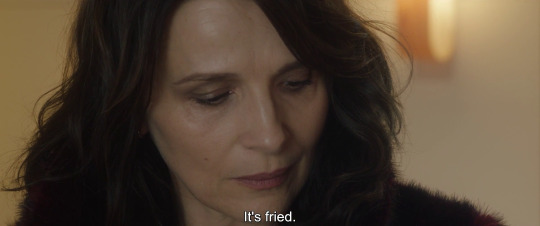
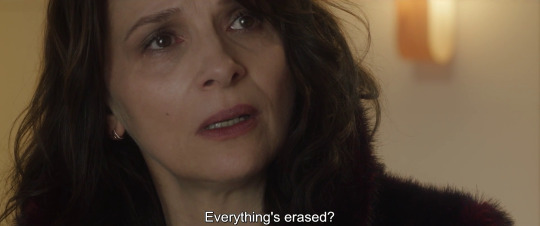


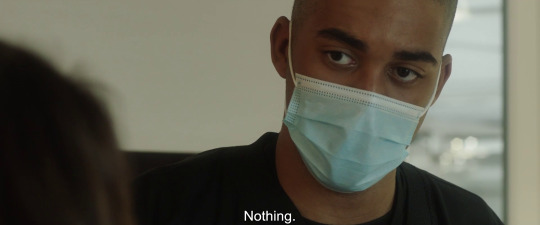
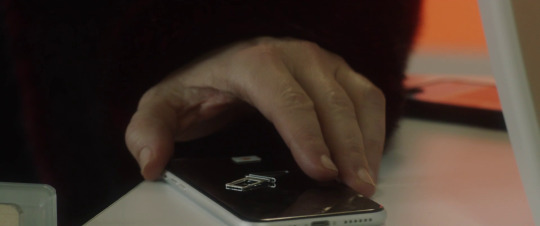
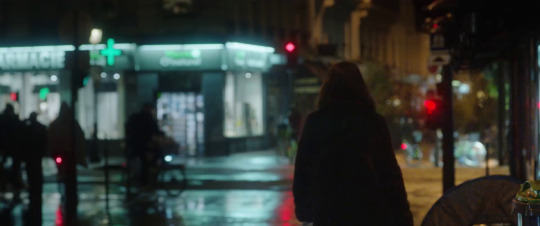
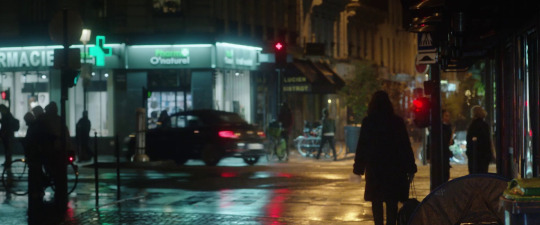
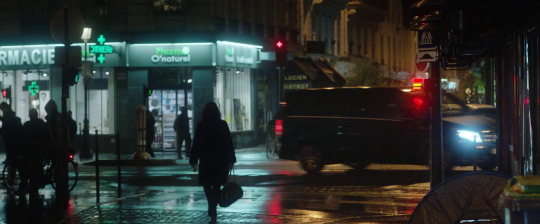
Fire (Claire Denis, 2022).
#avec amour et acharnement#fire (2022)#claire denis#juliette binoche#eric gautier#sandie bompar#guy lecorne#emmanuelle pencalet#arnaud de moleron#jessy kupperman#judy shrewsbury
35 notes
·
View notes
Text





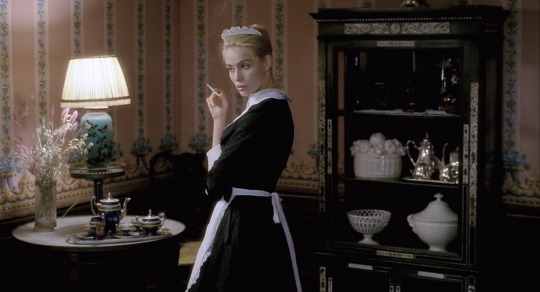

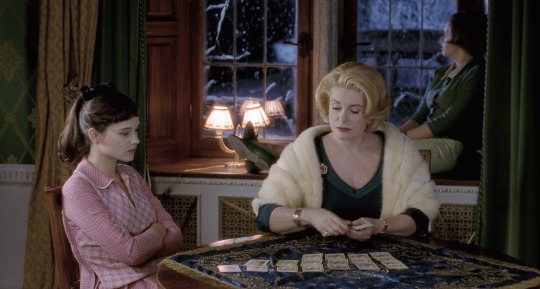

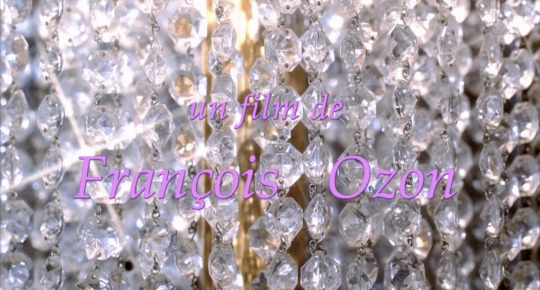
8 femmes / 8 women | 2002 | France - Italy
Director: François Ozon
Production designer: Arnaud de Moleron / Set decorator: Marie-Claire Quin
#8 women#8 femmes#françois ozon#production design#set design#interior design#interior and films#films#film frames#cinematography#cinema#2000s movies#2000s
15 notes
·
View notes
Photo
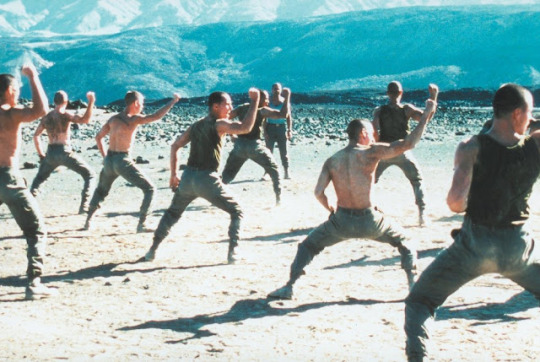
Beau Travail (Claire Denis, 1999).
Cast: Denis Lavant, Michel Subor, Grégoire Colin, Richard Courcet, Nicolas Devauchelle, Adiatou Massudi, Mickael Ravovski, Dan Herzberg, Giuseppe Molino, Gianfranco Poddighe, Marc Veh, Thong Duy Nguyen, Jean-Yves Vivet, Bernardo Montet, Dimitri Tsiapkinis, Djanel Zemali, Abdelkader Bouti. Screenplay: Claire Denis, Jean-Pol Fargeau, based on a novella by Herman Melville. Cinematography: Agnès Godard. Production design: Arnaud de Moleron. Film editing: Nelly Quettier. Music: Charles-Henri de Pierrefeu, Eran Zur.
Claire Denis's Beau Travail doesn't really have much in common with Kathryn Bigelow's Point Break (1991). Bigelow's film is pure pulp movie action thriller material, whereas Denis's is thoughtfully derived from a literary classic, Herman Melville's Billy Budd. But both films are directed by women with a keenly objective eye toward male display, the acting-out of testosterone-driven urges, a vision that gives these movies a special erotic charge. Denis's film has a coolness to it despite all the scenes of barechested Legionnaires working out intensely, even intimately in the desert sun. The central conflict of her film, between Galoup (Denis Lavant), the movie's Claggart equivalent, and Sentain (Grégoire Colin), the Billy Budd of the movie, is fragmented in Denis's telling. All of the film's Legionnaires are handsome, so that Sentain doesn't stand out immediately from the group the way Melville's Billy does. The development of Galoup's jealous antipathy is subtly handled, mostly by casting the story as a flashback by Galoup after being court-martialed and expelled from the Legion -- this Claggart doesn't die. Neither, for that matter, does this Billy Budd, although he comes closer to it. Beau Travail is something like a great movie, maybe because Denis's avoidance of melodramatic excess and narrative hand-holding leaves it up to the viewer to draw inferences about motives and behavior. The film gets a great boost from Agnès Godard's hungry cinematography, a score that includes excerpts from another version of Billy Budd, Benjamin Britten's opera, and most especially from the Legionnaires' training routines, choreographed by Bernardo Montet.
2 notes
·
View notes
Photo
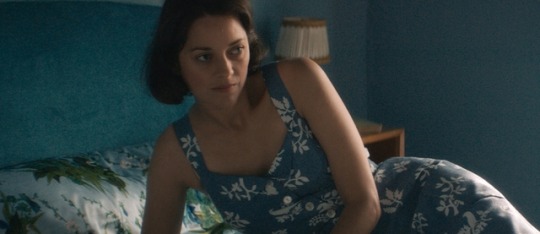
Today's review on MyOldAddiction.com, From The Land of the Moon (Mal de Pierres) by #NicoleGarcia starring #MarionCotillard and #LouisGarrel, "hopelessly dreary" NICOLE GARCIA Bil's rating (out of 5): BB. France/Belgium/Canada, 2016…
#Alain Attal#Alexandre Dufour#Aloïse Sauvage#Ange Black-Bereyziat#Anne Crestey#Arnaud de Moleron#Arthur Igual#Àlex Brendemühl#Belgium#Bernardo Guillen#Brigitte Roüan#Camilo Acosta Mendoza#Canada#Canal+#Cannes 2016#Catherine Leterrier#Christophe Beaucarne#Cine@#Cofinova 12#Daniel Para#Daniel Pemberton#Elian Planes#Emilio Martinez Alarcon#Folco Jullien#François dos Santos#France#France 3 Cinema#France Televisions#Francisco Alfonsin#Frédéric Bélier-Garcia
0 notes
Photo
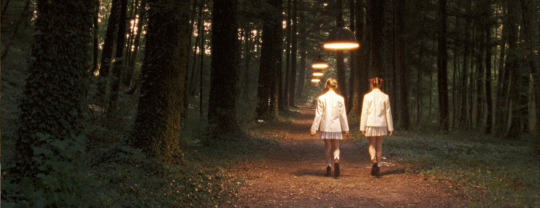
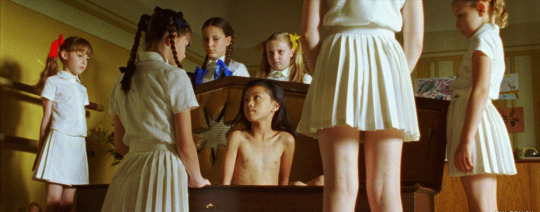
Zoé Auclair in 'Innocence' Production design by Arnaud de Moleron, costume design by Laurence Benoit
38 notes
·
View notes
Text
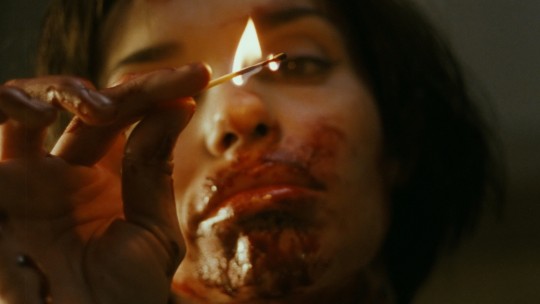
Béatrice Dalle in Trouble Every Day (Claire Denis, 2001)
Cast: Vincent Gallo, Tricia Vessey, Béatrice Dalle, Alex Decas, Florence Loiret Caille, Nicolas Duvauchelle, Raphaël Neal, José Garcia, Hélène Lapoiwer, Marilu Marini, Aurore Clément. Screenplay: Claire Denis, Jean-Pol Fargeau. Cinematography: Agnès Godard. Production design: Arnaud de Moleron. Film editing: Nelly Quettier. Music: Tindersticks.
Claire Denis has steadily resisted linear storytelling and expository dialogue, preferring to trust audiences to pay attention, to assemble the narrative of her films themselves. The result has been films touched with greatness like Beau Travail (1999) and White Material (2009) that invite viewers to experience their stories with greater immediacy than if they were spoon-fed the relationships and motivations of the characters. But sometimes this demand on the viewer backfires, as I think it does in Trouble Every Day. Watching the film can be a visceral experience, a descent into transgressive behavior that's made more disturbing because Denis treats it so coldly. Shane Brown (Vincent Gallo) and Coré Sémeneau (Béatrice Dalle) are both afflicted with extreme versions of a malady, apparently contracted in Guyana, that causes them to become violent when sexually aroused. Shane has his mostly under control, it seems, except that he's newly married and on his honeymoon. To protect his wife from his impulses, he masturbates, once interrupting their intercourse to jerk off frantically. Coré's case has advanced much further: Her husband, a physician (Alex Descas), keeps her locked up, but she escapes to have sex and then bite vampire-like into the throats of her victims. Shane has come to Paris to see Dr. Sémeneau, who has been researching this disorder. After Trouble Every Day culminates in one of the most brutal rape scenes ever staged in a film, we're left with only the suggestion that sex and violence are intimately related, hardly a novel idea. It's one treated in, for example, the two movies called Cat People (Jacques Tourneur, 1942, and Paul Schrader, 1982). Critics were mostly harsh when it was released, yet some revisionism has occurred, possibly because Denis is unquestionably a filmmaker who must be taken seriously. But unlike her best films, Trouble Every Day lacks the payoff of experiencing something meaningful. It ends up being only an intellectualized horror movie.
1 note
·
View note
Photo
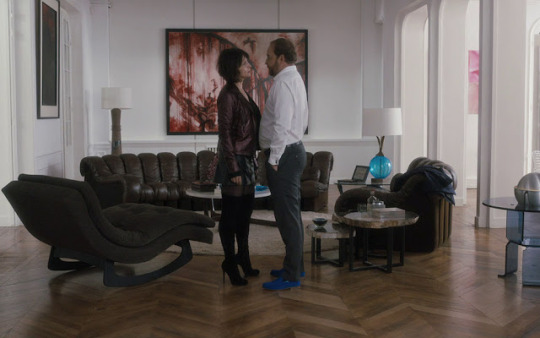
Juliette Binoche and Xavier Beauvois in Let the Sunshine In (Claire Denis, 2017)
Cast: Juliette Binoche, Xavier Beauvois, Nicolas Duvauchelle, Laurent Gréville, Alex Descas, Bruno Podalydès, Paul Blain, Gérard Depardieu, Philippe Katerine, Josiane Balasko, Sandrine Dumas. Screenplay: Christine Angot, Claire Denis, based on a book by Roland Barthes. Cinematography: Agnès Godard. Production design: Arnaud de Moleron. Film editing: Guy Lecorne. Music: Stuart Staples
Claire Denis is a formidable filmmaker, and her Beau Travail (1999) is an undisputed masterpiece. But I have to admit I just didn't get the first film of hers I ever watched, Let the Sunshine In. It's talky in that peculiarly French way of batting ideas back and forth like tennis balls, without anyone ever scoring. And it's hard for someone coming into it cold to figure out whether it's a psychological drama, a comedy, or a treatise on love and sex? It was only at the end, when Gérard Depardieu imposes his corporosity on the film, playing a kind of upscale guru/fortune teller who wags a pendant over the photographs of Isabelle's lovers and delivers "predictions" that have all the soothing ambiguity of a newspaper horoscope column, that I decided: It's a satire. Specifically, one directed at everyone's confusion about relationships. What makes the film work at all is the performance of the always-wonderful Juliette Binoche as Isabelle, a woman with several lovers ... no, strike that, I mean sexual partners. The first one we see right away, the banker named Vincent, having sex with Isabelle. But there's no postcoital glow: Immediately, Vincent reveals himself as an absolute jerk, which is reinforced by a subsequent scene in a bar where Vincent pointlessly torments an innocent bartender, ordering him to place the bottle here, the glass there, and asking him if they have any "gluten-free olives." Next, there's an unnamed actor, with whom Isabelle definitely has chemistry, but who reveals himself to be as self-conscious about relationships as she is. And so on. The upshot is that Isabelle and her partners are guilty of what D.H. Lawrence denounced as "sex in the head." But the film has no narrative shape: Isabelle is as confused at the end as she is at the beginning, so there's no arc to follow through the film. Her life is a series of crises that may feel achingly familiar to many viewers, but aside from some wonderful moments -- as when Isabelle mocks a group of her fellow artists, gathered for a symposium in the country, for their pretentious admiration of nature -- I felt emptier at the end of Let the Sunshine In than at the beginning.
1 note
·
View note
Photo

Mati Diop and Alex Descas in 35 Shots of Rum (Claire Denis, 2008)
Cast: Alex Descas, Mati Diop, Nicole Dogué, Grégoire Colin, Julieth Mars Toussaint, Adèle Ado, Jean-Christophe Folly, Ingrid Caven. Screenplay: Claire Denis, Jean-Pol Fargeau. Cinematography: Agnès Godard. Production design: Arnaud de Moleron. Film editing: Guy Lecorne. Music: Tindersticks.
If I hadn't read that Claire Denis said that 35 Shots of Rum was inspired by Yasujiro Ozu's Late Spring (1949), I'm not certain I would have spotted it. But once I learned that fact, it became obvious. Both films are about widowers living with their daughters, and both end with the daughter's marriage and the father contemplating loneliness. I would have to rewatch Late Spring to cite other parallels, but the central fact is that both films share a bittersweet, melancholy tone. The fact that Lionel (Alex Desecas) and Jo (Mati Diop) are Black lingers as a subtext in the film, the way the devastation of Japan in the war lingers in the background of Ozu's films, surfacing in Denis's film when the anthropology class Jo attends begins to discuss postcolonialism, with references to the radicalism of Frantz Fanon and other writers. Mostly, however, we stay in the enclosed world of Lionel and Jo and their friends, Gabrielle (Nicole Dogué) and Noé (Grégoire Colin). One of the film's challenges (and delights) is that Denis plunges us into their world without exposition, leaving us to discover the relationships (and even the names) of the characters as the narrative unfolds. For a while at the start of the film, I took Lionel and Jo to be a married couple or lovers, so close is their relationship, until it became apparent that they were father and daughter. Even the title takes some time to work out its significance: It refers to a ritual drinking bout that's supposed to occur at important celebrations, and we first see it at the retirement party of René (Julieth Mars Toussaint), Lionel's fellow driver in the metropolitan Paris train system. Though Lionel gets fairly inebriated, he decides the occasion isn't important enough to consume all 35 shots of rum. Eventually, René is unable to cope with loneliness and lack of purpose after the mandatory retirement and kills himself on the train tracks where Lionel is driving. René's death adds poignancy to Lionel's facing life alone after Jo marries -- a wedding at which he does indeed go through with the 35 shots ritual. Denis's film is a subtle, moving delight, full of details that are enough to provoke extended contemplation or even a rewatching. Decas and Diop (who would go on to direct her own fine film, Atlantics, in 2019) give quietly extraordinary performances.
1 note
·
View note
Photo
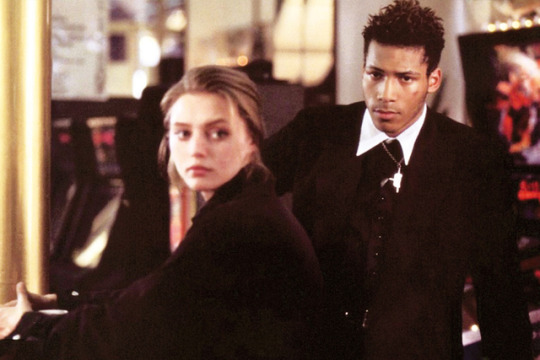
Today's review on MyOldAddiction.com, I Can't Sleep (J'ai Pas Sommeil) by #ClaireDenis, "kept under smooth and confident control by this remarkably talented director" CLAIRE DENIS Bil's rating (out of 5): BBBB. France/Germany/Switzerland, 1994. …
#Agnes Godard#Agora Film#Alex Descas#Alice Hurtaux#Antoine Chappey#Arena Films#Arlette Havet#Arnaud Carbonnier#Arnaud de Moleron#Béatrice Dalle#Bruno Pesery#Catherine Frot#Claire Denis#Claire Fraisse#Dani#Daniel Isoppo#Danielle van Bercheycke#Denise Dax#Didier Flamand#Didier Sandre#Fabienne Mai#France#France 3 Cinema#Francis Lemonnier#Gabriel Julien-Laferrière#Germany#Hilton McConnico#Hopi Lebel#Ira Mandella-Paul#Irina Grjebina
0 notes
Text
Let The Sunshine In (Un beau soleil intérieur)
Today's review on MyOldAddiction.com, Let The Sunshine in by #ClaireDenis starring #JulietteBinoche.
BBBB
(out of 5)
Juliette Binoche is exquisite as an artist in a perpetual emotional freefall, unable to deal with the dissolution of her marriage and now looking for something meaningful in a series of men who are as confused by her as she is baffled by them. A married banker (Xavier Beauvois) whose rough edges turn her on leads to a moody actor (Nicolas Duvauchelle) who drowns his sorrows in…
View On WordPress
#Ad Vitam Production#Agnes Godard#Alex Descas#Arnaud de Moleron#Arte/Cofinova 11#Belgium#Bertrand Burgalat#Bruno Podalydes#Centre National De La Cinematographie#Charles Pépin#Christine Angot#Cinémage 10#Claire Denis#Claire Tran#Curiosa Films#FD Production#France#Gerard Depardieu#Guy Lecorne#Josiane Balasko#Julien Meunier#Juliette Binoche#La Banque Postale Image 10#Laurent Grévill#Le Tax Shelter du Gouvernement Federal de Belgique#Lucie Borleteau#Nicolas Duvauchelle#Now Playing#OCS#Olivier Delbosc
0 notes
Text
Trouble Every Day
BBB.5 (out of 5) Claire Denis makes her way into the world of horror with his moody, sexy drama. Vincent Gallo and Tricia Vessey have arrived in Paris for their honeymoon, but their bliss is short-lived by his needing to keep up with medical contacts about their genetic experiments that seem to be turning people feral. It’s not an action movie, it’s an emotional piece that just happens to have…
View On WordPress
#Agnes Godard#Albert Szpiro#Alex Descas#Alexandre Uzureau de Martynoff#Alice Houri#Arnaud Churin#Arnaud de Moleron#Aurore Clément#Bakary Sangaré#Béatrice Dalle#Caroline Tavernier#Céline Samie#Claire Denis#Csilla Lukacs-Molnar#Florence Loiret Caille#Georges Benayoun#Hélène Lapiower#Jean-Michel Rey#Jean-Pol Fargeau#José García#Judy Shrewsbury#Lacrita Massix#Laure Guérard#Lionel Goldstein#Marilu Marini#Myriam Theodoresco#Nelly Quettier#Nelly Zargarian#Nicolas Duvauchelle#Philippe Liegeois
0 notes